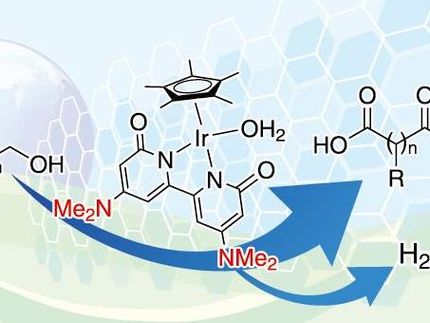NSF grant funds UCSC chemists developing alternatives to phthalate plasticizers
Chemistry professor Rebecca Braslau has developed a new approach that could lead to a safe and affordable alternative to widely used phthalates
Advertisement
Rebecca Braslau, a professor of chemistry and biochemistry at UC Santa Cruz, has received a $480,000 grant from the National Science Foundation to support her research to develop a safe and affordable alternative to phthalate plasticizers.
Phthalates are synthetic chemicals added to polyvinyl chloride (PVC) to make flexible plastics. Due to health concerns, phthalates have been banned from children's products in the United States and Europe, but they are still used in a wide range of consumer products, including food wrap, medical devices, automotive parts, and building materials.
Phthalates are readily absorbed by the body through inhalation, ingestion, or skin contact. Because phthalates are not chemically bound to the PVC polymer, they tend to migrate out of plastic products and into the environment. The same is true of alternative plasticizers currently on the market. Braslau's approach is to use compounds similar to phthalates that can be chemically attached to the PVC polymer chain.
"We want our phthalate mimics to be part of the polymer so they won't leak out, and even if they do, it would be as part of a larger molecule that wouldn't have the same health effects," Braslau said.
Phthalate exposure has been associated with reproductive and developmental abnormalities in animal studies. Epidemiological studies in humans also suggest that exposure to phthalates may have adverse health effects, including reproductive abnormalities that can lead to infertility. Phthalates are metabolized by the body into compounds that are considered "endocrine disruptors," chemicals that interfere with the body's hormone systems. Effects on wildlife of phthalates in the environment are also a concern.
Braslau first began studying phthalates several years ago and published a paper showing how a phthalate mimic could be incorporated into the PVC polymer. A key part of the process required an expensive chemical step, however, so she didn't pursue it any further. More recently, however, she realized that a similar target could be prepared using much simpler "click" chemistry. "It's called a click reaction because it's so easy it's like snapping your fingers," Braslau said.
First she found a click reaction that made most of the desired structure, but required a copper catalyst. She kept searching the literature and eventually found a reaction she could use that didn't require copper. After experimenting with the procedure in her lab, she and her students showed that the reaction works at room temperature to make a compound very similar to a phthalate, with a chemical bond to a PVC polymer. Those results were published earlier this year in a paper by Braslau and graduate student Aruna Earla in Macromolecular Rapid Communications.





























































